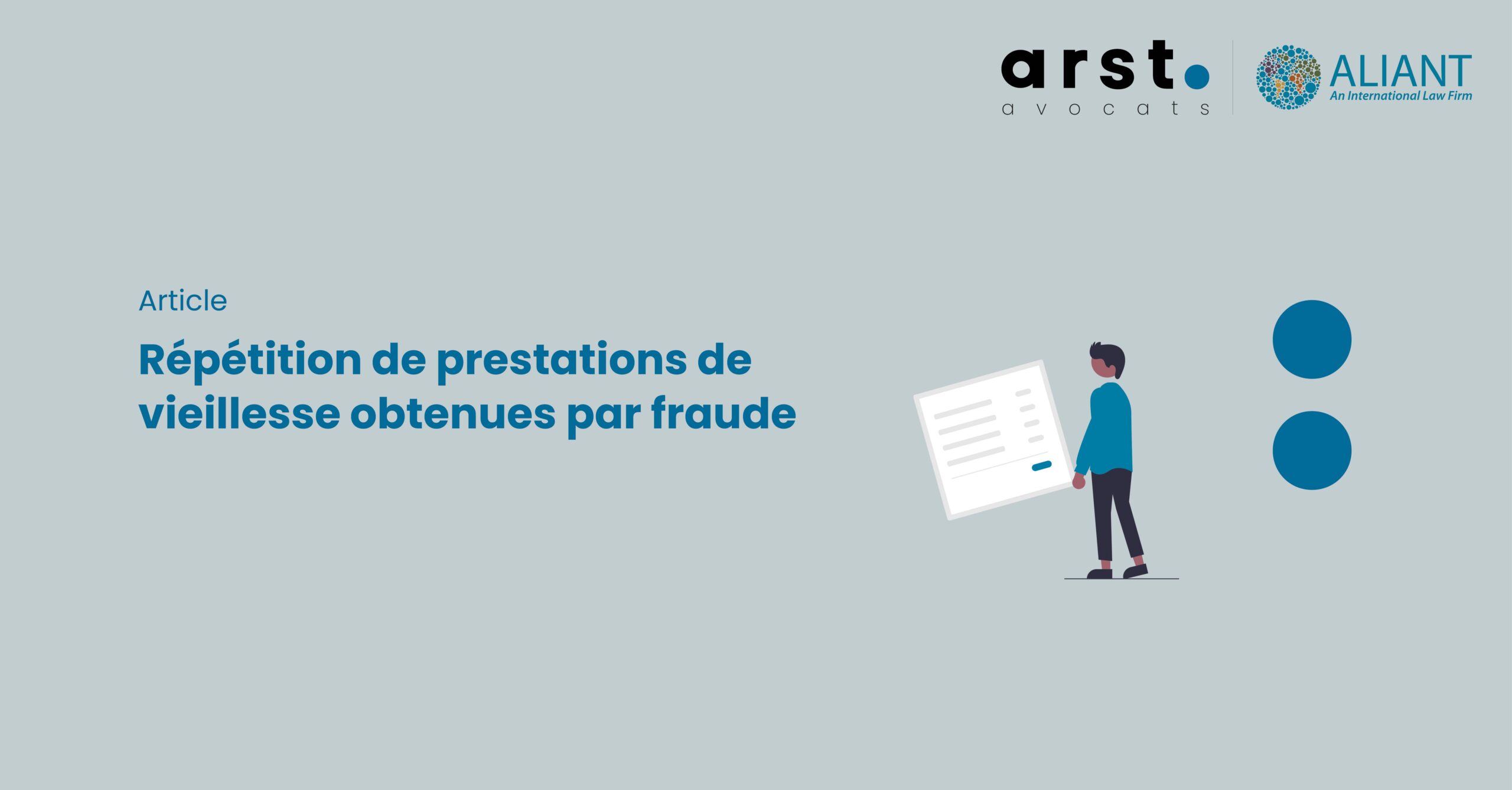
Court of Cassation, Plenary Assembly, May 17, 2023, No. 20-20.559
Meeting in Plenary Assembly on May 17, 2023, the Court of Cassation has just issued a very useful ruling in a case where an insured person receiving a survivor's pension, paid by the National Old-Age Insurance Fund (Cnav), had fraudulently failed to declare certain additional income which should have limited his right to receive a pension.
Nearly six years after the start of the payment of his survivor's pension, the insured person was subject to a resource check, at the end of which his omission was detected and led the Cnav to request the reimbursement of the benefits unduly paid, which he obviously tried to contest.
On appeal, the judges considered that the Cnav's action for recovery had indeed been exercised within the five-year period provided for by article 2224 of the civil code [1] , which runs in fact from the day of the discovery of the fraud and not from that of its commission.
Regarding the amount of money to be returned by the fraudster, the judges considered that the Cnav was not entitled to go back more than five years from the discovery of the false declaration, in accordance with the provisions of article 2224 of the civil code.
Dissatisfied with the decision rendered on appeal, the Cnav lodged an appeal in which it argued in particular that the five-year period prescribed by the aforementioned Article 2224 was intended to limit in time the right to take action for recovery of undue payments and not to limit the period used to calculate the sums to be returned.
In its judgment of May 17, 2023, the High Court recalled that the two-year period running from "the payment of benefits to the beneficiary" applicable to the action for reimbursement of benefits, provided for by Article L355-3 of the Social Security Code [2] , was extinguished, in the event of fraud, in favor of the five-year period, running from the date of knowledge of the fraud, provided for by Article 2224 of the Civil Code, a solution which was not seriously contested.
The Court of Cassation then stated, and this is the main contribution of its decision, that the five-year period of Article 2224 applied exclusively to the period for bringing an action for recovery of undue payment, but that it had no "impact on the period of recoverable undue payment ".
Regarding the period of recoverable overpayment, the Court of Cassation recalls that in the absence of specific provisions, the general period of twenty years of article 2232 of the civil code [3] must apply, thus allowing the payer (here the Cnav) to be reimbursed for sums paid up to twenty years ago.
It should be noted that the position defended by the Court of Cassation is only the confirmation of the solution recently established by the Council of State, through three judgments [4] in which it was ruled that : " the five-year limitation period [...] only relates to the time limit for bringing the action, not to the determination of the claim itself ".
Part of the legal doctrine is relatively critical of this decision, on the grounds that it would result in a sanction that is too severe for the recipient , who would thus be exposed to the risk of having to repay sums collected over twenty years.
It is recalled, however, that in 2021, the amount of pension fraud was estimated at 9 billion euros [5] and that in the absence of fraud, the recovery period is limited to three years, the time limit for taking action being reduced to two years.
[1] Article 2224 of the Civil Code : " Personal or movable property actions are barred after five years from the day on which the holder of a right knew or should have known the facts enabling him to exercise it."
[2] Article L355-3 of the Social Security Code : " Any claim for reimbursement of overpayments of old-age and disability benefits is time-barred after two years from the date of payment of said benefits to the beneficiary, except in cases of fraud or false declaration."
[3] Article 2232 of the Civil Code : “The postponement of the starting point, the suspension or the interruption of the limitation period may not have the effect of extending the limitation period beyond twenty years from the day the right arose. The first paragraph does not apply in the cases mentioned in Articles 2226, 2226-1, 2227 , 2233 and 2236, in the first paragraph of Article 2241 and in Article 2244. It also does not apply to actions relating to the status of persons.”
[4] CE, September 20, 2019, No 420406 ; 420489 ; 419659
[5] Source: L'Assurance retraite https://www.lassuranceretraite.fr/portail-info/hors-menu/actualites-nationales/institutionnel/2021/la-lutte-contre-la-fraude-au-sei.html#:~:text=Rapport%C3%A9es%20au%20volume%20total%20des,de%209%20milliards%20d'euros.

Jefferson Larue
author

Agathe Posty
author
Biennial prescription: the Court of Cassation finally sets limits in favor of insurers
The obligation to inform insurers about the causes of interruption of the two-year prescription does not require mentioning the entire article 2243 of the Civil Code according to which the interruption does not take place when the claimant give up, leave...
Interview with Romain Picard, young partner of the firm Arst Avocats specialized in Corporate / M&A
Today we welcome Romain Picard, a young partner from Arst Avocats, who tells us about the reasons that led him to join the firm and talks to us about the projects that drive him with regard to the development of the practice of Corporate / M&A in this office...
Confidentiality of meetings between parties and lawyers: rules to know
Reminder of the rules governing the confidentiality of meetings held in the presence of the parties and their lawyers. Pursuant to Article 3 of the National Internal Regulations of the Legal Profession (“RIN”), professional secrecy covers correspondence exchanged...
Biennial prescription: the Court of Cassation finally sets limits in favor of insurers
The obligation to inform insurers about the causes of interruption of the two-year prescription does not require mentioning the entire article 2243 of the Civil Code according to which the interruption does not take place when the claimant give up, leave...
Interview with Romain Picard, young partner of the firm Arst Avocats specialized in Corporate / M&A
Today we welcome Romain Picard, a young partner from Arst Avocats, who tells us about the reasons that led him to join the firm and talks to us about the projects that drive him with regard to the development of the practice of Corporate / M&A in this office...
Confidentiality of meetings between parties and lawyers: rules to know
Reminder of the rules governing the confidentiality of meetings held in the presence of the parties and their lawyers. Pursuant to Article 3 of the National Internal Regulations of the Legal Profession (“RIN”), professional secrecy covers correspondence exchanged...